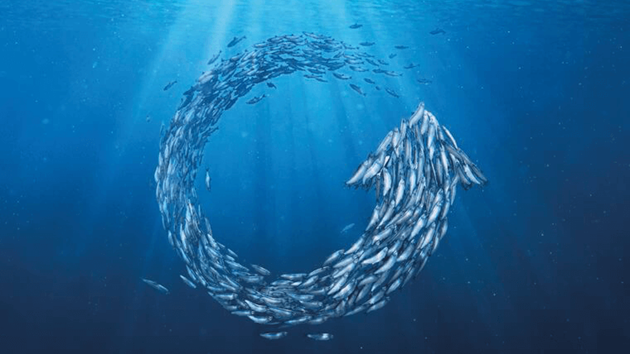Designed for Levels 5+ and adaptable material for levels 3-5+, in this topic we explore more closely fisheries jobs, the seafood supply chain, illegal fishing and slavery at sea!
Download Seafood Supply Chain & Illegal Fishing ALL SLIDES / Download Unit Plan Seafood Supply Chain & Illegal fishing
Dive in and explore
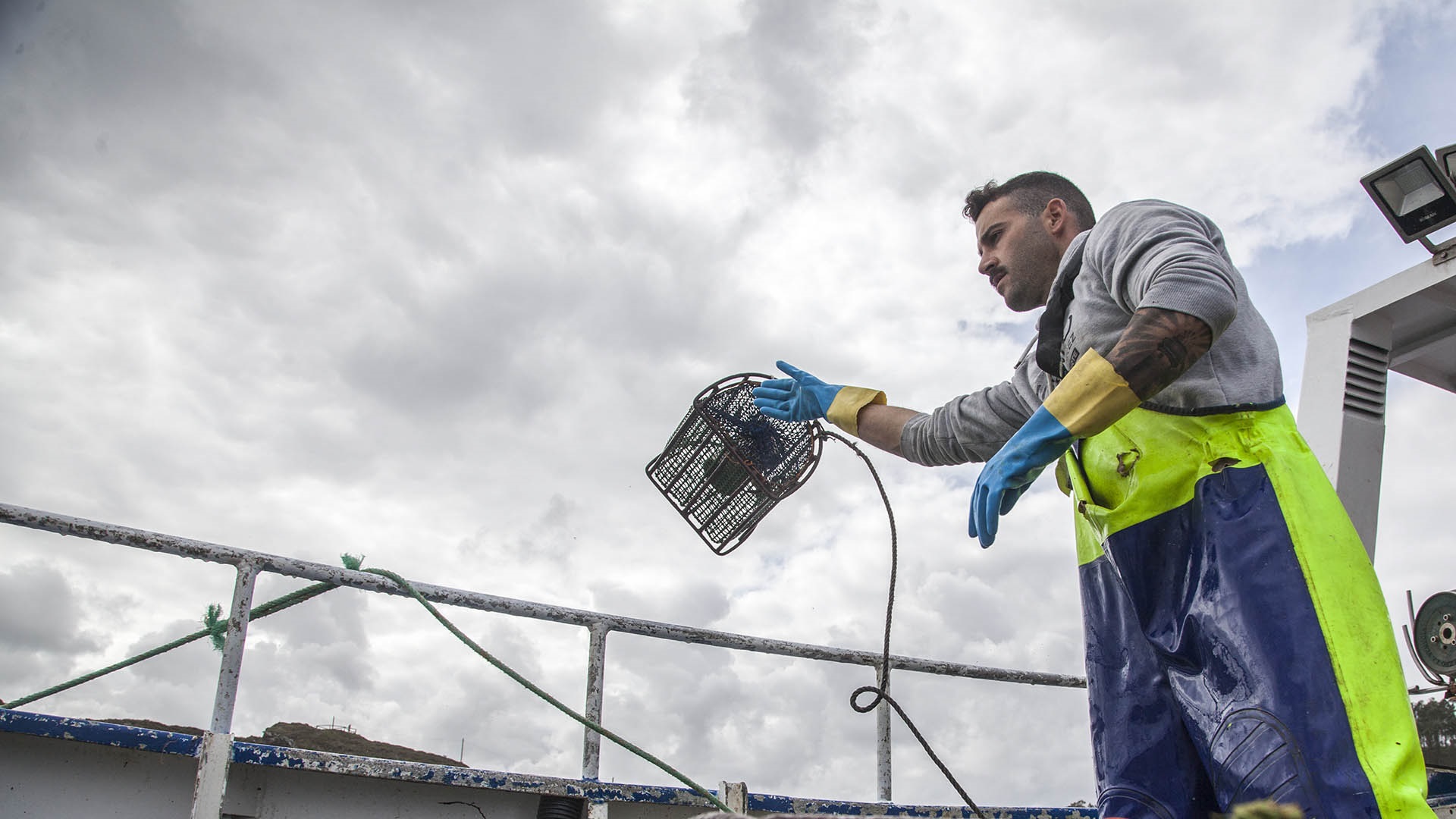
Seafood Industry Jobs
Explore what it’s like to work in the seafood industry in a job that helps deliver fish to the dinner table!
🎚 Level: 3-5+
⌚ Duration: 45 + minutes
✍ Curriculum areas: Science, Pūtaiao, Social Science, Tikanga-ā-iwi, Geography
🌟 Key competencies: Thinking; Managing Self; Relating to others
🔤 Keywords: Employment, Seafood industry, Fishing industry, Ocean to plate, Supply chain
📌 Location: Indoors
⏭ Next steps (this topic): Seafood supply chain, Slavery at sea
⏭ Next steps (other topics): Fishing history, technology and innovation
📚 Prior learning: Overfishing; Sustainable fishing
There are a huge variety of jobs associated with fishing and the seafood industry! The New Zealand seafood industry employs over 13,000 full time workers. Around 2,500 of these workers are employed in commercial fishing and aquaculture operations at sea.
Focus Questions:
Who are some of the people who work in the seafood industry and what do they do?
What new words and concepts have we learnt?
Learning outcomes:
Describe some of the jobs that people do who work in the fishing and seafood industry
Use seafood industry related vocabulary
Materials:
Seafood Industry & Jobs SLIDE SET
Seafood Industry & Jobs OUTLINE
Access to internet
Copies of Fishing Jobs WORKSHEET
Something to write with
Activities include:
CONSIDER people you know who work in the seafood or fishing industry?
BRAINSTORM and complete the Prior Knowledge Chart
INVITE a local commercial fisher to visit and talk about their work at sea
DISCUSS some key facts about the number of people employed by Aotearoa’s seafood industry
EXPLORE what it would be like to work on a fishing boat
WATCH the film clips about the job of a rock lobster fisherman, an inshore skipper, and a deep water skipper
INVESTIGATE job opportunities aboard a deep sea factory ship
EXPLORE opportunities opening up for young Māori and those who attend the deep-sea fishing school
INVESTIGATE a seafood industry related job at Careers New Zealand website and complete the Fishing Jobs WORKSHEET
INVESTIGATE fishery related careers using Careers New Zealand CareerQuest tool
WATCH the short film about the fishing community
LIST jobs you see people doing that are involved in the supply of seafood from ocean to plate
DISCUSS which seafood industry related job you would most and least like to do! Why?

Seafood supply chain
Explore the chain of activities that occur between fish being taken from the sea until they arrive on your plate!
🎚 Level: 3-5+
⌚ Duration: 45+ minutes
✍ Curriculum areas: Science, Pūtaiao, Social Science, Tikanga-ā-iwi, Geography
🌟 Key competencies: Thinking; Managing Self; Relating to others
🔤 Keywords: Employment, Seafood industry, Fishing industry, Ocean to plate, Supply chain
📌 Location: Indoors
⏭ Next steps (this topic): Seafood supply chain, Slavery at sea
⏭ Next steps (other topics): Fishing history, technology and innovation
📚 Prior learning: Overfishing, Sustainable fishing
A huge variety of jobs exist across the seafood supply chain from the person catching the fish to the chef that cooks it! The seafood supply chain is the chain of steps that happens to supply seafood from the ocean to your plate.
Focus Questions:
What are the key steps in the chain that delivers seafood from the ocean to our plates
What new words and concepts have we learnt?
Learning Outcomes:
Identify the key steps in the seafood supply chain (from ocean to plate)
Use scientific and fishery management related vocabulary
Materials:
Seafood Supply Chain SLIDE SET
Access to internet (for film clips)
Copies of FishWise Seafood Supply Chain Diagram
Something to write with
Activities include:
DISCUSS the idea of a supply chain
BRAINSTORM what we already know about the seafood supply chain
WATCH the short Mountain Film Festival film called Ocean to Plate
LIST different steps in the journey of a fish from ocean to plate
DISCUSS improvements would you make to the ocean to plate seafood supply chain as shown in the film
CREATE a flow diagram of all the steps a fish journeys through from the moment it is caught to the point it is eaten (or discarded)
COMPARE your flow chart with the FishWise Seafood Supply Chain Diagram
READ and discuss the example from Lee Fisheries
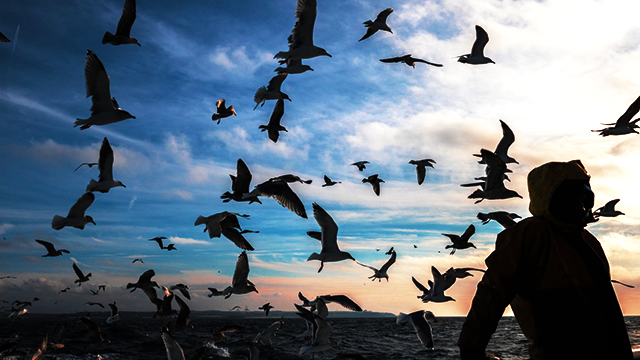
Illegal fishing & slavery at sea
Explore the problems associated with illegal, unreported and unregulated fishing; and slavery at sea.
🎚 Level: 3-5+
⌚ Duration: 45+ minutes
✍ Curriculum areas: Science, Pūtaiao, Hauora, Maths, Social Science, Tikanga-ā-iwi, Geography
🌟 Key competencies: Thinking; Managing Self; Relating to others
🔤 Keywords: Slavery, Pirate, Human rights, Illegal, Unregulated, Labour rights
📌 Location: Indoors
⏭ Next steps (this topic): Topic review
⏭ Next steps (other topics): Fishing history, technology & innovation
📚 Prior learning: Overfishing, Sustainable fishing, Fisheries Management
Illegal, unreported and unregulated fishing can cause the decline or collapse of fisheries. Illegal, unreported, and unregulated (IUU) fishing is when people fish outside of the law and is big problem around the world. It is often conducted without concern for marine life or the environment. Here we also investigate the reality that some fishing vessels (not Marine Stewardship Council certified ones!!) exploit their workers to be effectively slaves at sea.
Focus Questions:
What is illegal and unreported fishing? What impact do these practices have?
Why do human rights abuses occur on some fishing vessels at sea?
What new words and concepts have we learnt?
Learning Outcomes:
Describe one or more types of illegal fishing and how this can impact on sustainability of a fish stock
Why do human rights abuses occur on some fishing vessels at sea?
Use seafood industry related vocabulary
Materials:
Illegal Fishing & Slavery SLIDE SET
ILLEGAL FISHING & SLAVERY OUTLINE
Access to internet (for film clips)
Something to write with
Copies of IUU fishing quiz (see Teacher outline, page 5)
Copies of Illegal fishing WORKSHEET
Activities include:
DISCUSS the concept of illegal, unreported and unregulated fishing
BRAINSTORM what you already know about illegal fishing
READ the Marine Stewardship Council story about the hunt for pirates who illegally fished toothfish
DISCUSS and ORDER the Pirate story timeline challenge cards (see ILLEGAL FISHING & SLAVERY TEACHER OUTLINE)
Take the IUU fishing QUIZ
DISCUSS illegal fishing and poaching in Aotearoa
WATCH a short film how poaching has impacted on the recovery of toheroa
EXPLORE what the Marine Stewardship Council does to deal with illegal fishing
READ and ANSWER questions using the illegal fishing worksheet
INVESTIGATE the idea of a Global Fishing Watch
WATCH the short film about Global Fishing Watch
EXPLORE and DISCUSS Global Fishing Watch map
DISCUSS poor working conditions and slavery on fishing vesselsEXPLORE the concept of flags of convenience
WATCH the short film about forced labour on fishing boats
BRAINSTORM reasons why people are being forced to work at sea for long periods of time
Extend learning by EXPLORING human rights & labour rights
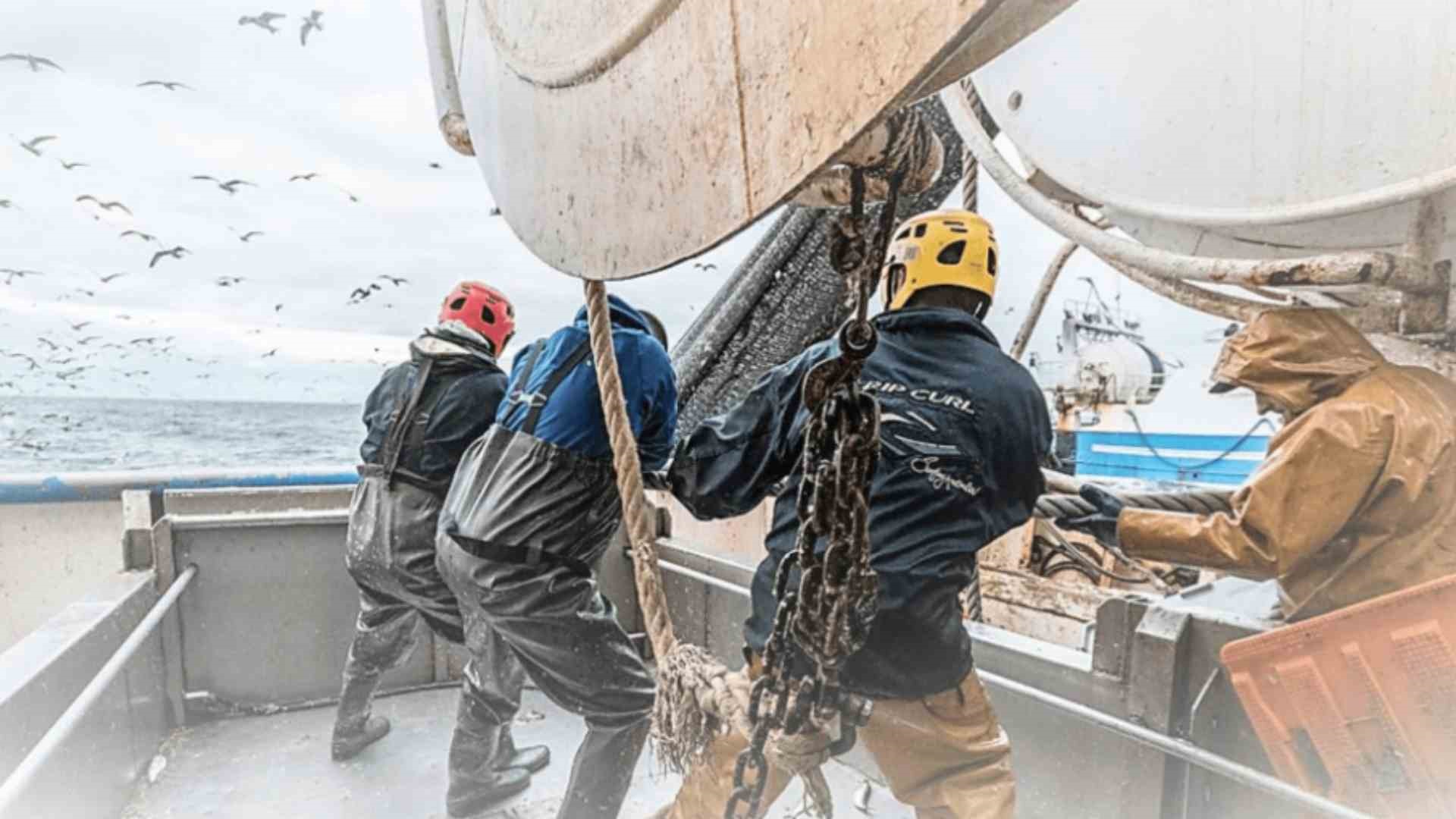
Review key concepts
Deepen understanding of the supply chain, illegal fishing and slavery at sea by reviewing key concepts explored during this topic.
🎚 Level: 3-5+
⌚ Duration: 45+ minutes
✍ Curriculum areas: Science, Pūtaiao, Hauora, Maths, Social Science, Tikanga-ā-iwi, Geography
🌟 Key competencies: Thinking; Managing Self; Relating to others
🔤 Keywords: Supply Chain, Traceability, Illegal fishing, Slavery, Pirate, Human rights, Illegal, Unregulated, Labour rights
📌 Location: Indoors
⏭ Next steps (this topic): None
⏭ Next steps (other topics): Fishing history, technology and innovation
📚 Prior learning: Overfishing, Sustainable fishing; Fisheries Management
Review key learning from this topic.
Focus Questions:
What new words and concepts have we learnt?
Learning Outcomes:
Use scientific and fisheries related vocabulary
Materials:
Review, Illegal Fishing & Slavery SLIDE SET
Download Unit Plan Review Seafood Supply Chain & Illegal fishing
Activities include:
REVIEW learning using a continuum activity
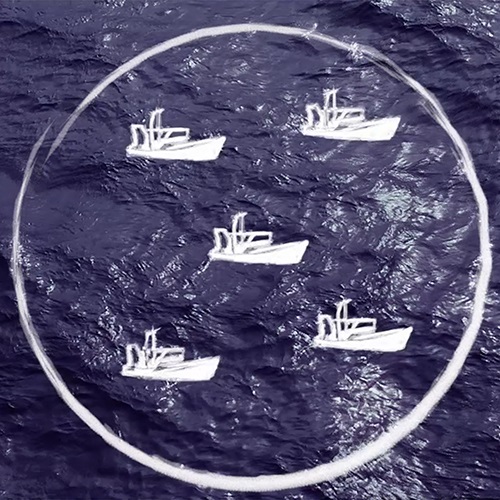
Back to Topic 5
Fishery management - Mā te kanae anō te kanae hei kōrero. Mā te tāmure anō te tāmure hei kōrero. Mā te pāpaka anō te pāpaka hei kōrero
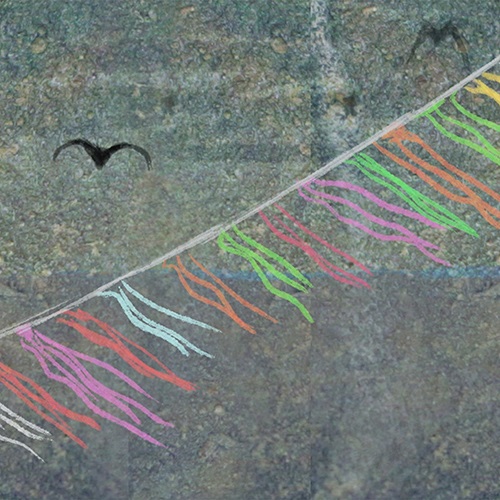
Forward to Topic 7
Fishing history, technology and innovation - Ko Māui i huti i tana ika
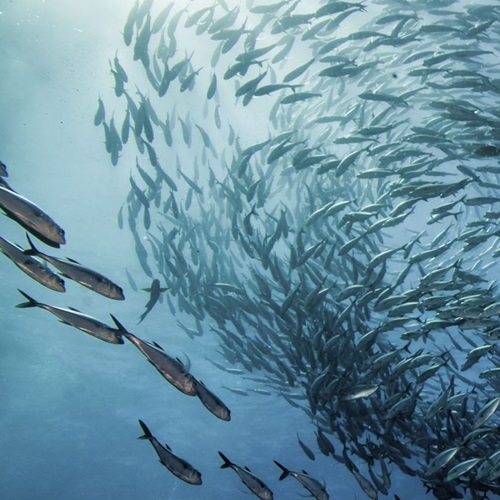
Topic selector
Te Kawa o Tangaroa: all topics
Explore more

Featured{{item.Headline}}
{{item.Description}}
Sign up for teacher updates
Each quarter, we'll feature the latest education resources, upcoming calendar dates, competitions and the very best ocean-related stories.

